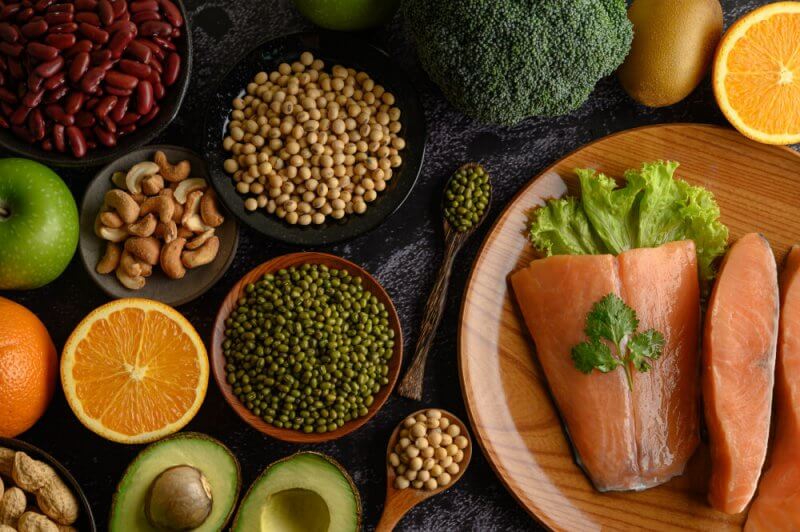Should I Eat Breakfast Before or After A Morning Run?

Researchers found no major difference in body composition or weight loss in the groups of those who worked out before or after breakfast. Further research suggests no performance limitations for the average runner going out at a relaxed pace for a short run before eating.
In other words, trial and error is the best tactic to figure out what works best for you.
There are two types of runners: those who eat breakfast before going for a run and those who don’t. Like most things running-related, there are differing opinions. And if you ask someone in each camp, they usually both think they are right.
Some people feel like they need a little something to get their system going and to have that energy to power through the workout. Other runners find that taking in anything besides some water leaves them queasy mid-run.
Determining which is better depends on the individual. Put simply, what works for one runner might not for others.
So is it better to eat before or after a run?
Is it Okay to Run on an Empty Stomach?
Even though many athletes worry that running without fuel in the tank would make it difficult, there are others whose daily norm is not to take in any fuel before a morning run.
You probably are aware that the body uses glucose stores from dinner the night before to help fuel your body. This is why it’s important to eat a healthy, well-balanced meal with protein, carbs, and lots of veggies the night before a planned run.
And while long runs require fuel mid-run like energy gels, waffles, sports drinks, chews or another product, shorter distance runs don’t necessarily require anything before or during the run.
Training in a fasted state can prove beneficial to some athletes for multiple reasons.
First, if you have stomach difficulties or you suffer from gastrointestinal distress, running without anything in your stomach can help avoid that problem.
Running fasted has been known to increase your fat burn when compared to running after breaking your fast with something to eat.
While eating after a quick run still depends on preference and goals like weight loss, it might be best to do so only when going for a shorter distance run.
Running a long-distance run such as 10 miles on an empty stomach might not be the best thing for performance.
But for those quick runs, most should be able to run fast still and head on back for breakfast without a problem.
Benefits of Eating Before a Morning Run
Some runners feel like they need to eat before they run. Eating pre-workout can provide just the boost the runner needs to go the distance.
A pre-run meal should be simple and nutritious, like chocolate milk, a greek yogurt, a bagel and peanut butter, almond butter on a piece of toast or a bowl of oatmeal with a piece of fruit.
Other options include fruit, an energy bar, a protein shake,or a smoothie. Stay away from gassy and greasy fatty foods.
If you plan to eat a breakfast of any substance, it is important to eat 1-2 hours before the run. This gives the body enough time to digest the food not to feel like it’s about to come back up mid-run.
What about those who don’t have time to eat and wait that hour or two?
If this is you, plan to get a small snack to fuel your body while not upsetting your stomach.
A light snack like a packet of oatmeal, cereal bar, granola bar, or banana can provide just enough energy stores to help you get through a short run and put a pause on your growling stomach.
Is It Okay to Fast After a Run?
With the growing popularity of intermittent fasting, many people want to skip fueling up before and after their run.
Although I believe that most things are very personal decisions, this is not one I would advocate for. I strongly believe that food should be looked at as fuel and treated accordingly.
Asking your body to perform for you and then not giving it the fuel it needs seems unnecessary. If you don’t eat before a run, take in protein and carbohydrates to replenish your body after your run.
You can delay eating post-run for a bit for those who eat before running.
Overall, it is advisable to get some form of protein into your body within an hour of a strenuous workout.
Now, if you have just done an easy run and nothing too taxing, you can delay that and fast for a bit if you wish. However, if the workout is speed work, a long run, or something challenging, don’t neglect that refueling process.
Is It Better to Eat Before or After a Run If You’re Trying to Lose Weight?
Exercising fasted improves the ability of your body to use fat as fuel. If you are trying to lose weight and do not struggle to work out fasted, give that a try.
Then, have a planned meal of nutrients such as protein and carbohydrates ready for after the workout. This will put you in the best position for success the rest of the day.

People who try to skip the meal hoping to burn more calories the rest of the day are misguided.
First, there is no science behind that.
Second, you are more likely to overeat later in the day if you do that.
Besides fueling your body, making good choices can prevent dietary nightmares when you feel famished later on.
Remember, if you treat food as fuel, you are less likely to feel neglected and make poor choices.
What Should You Not Eat After Running?
Resist the urge to overeat on empty carbohydrates post-run. While these taste good, they do nothing to rebuild and adequately refuel your body.
Sure, a large meal such as a stack of pancakes looks and tastes amazing, but a couple of pancakes, scrambled egg, and grilled ham will set you up for greater success, and you won’t be feeling famished in an hour or two.
Also, avoid eating anything that is very greasy or spicy post-run. Those are other foods that can leave you feeling icky for the rest of the day.
Hitting up a smoothie joint and grabbing a fruit drink seems like a great idea, but is it?
While there are far worse choices, you need to be certain that they add some protein to the drink. There are also some excellent protein drinks out there you can make at home.
Having said all of that, as long as you are getting in the right food such as protein and carbohydrates, you’ll be on the right track.
If your post-run meal works for you, enjoy it.
What Does Science Say?
There is a reason you are not finding a clearcut answer. Deciding when to eat when planning a run really varies based on the runner.
Some with sensitive stomachs prefer to work out first and then have a wholesome meal after.
Others need something to function and start their day.
When to eat also depends on the distance running, the intensity of the run, and overall health and weight loss goals.
Those who are sticklers for science and want to do what the research has proven know that the jury is still out on which is better.
Researchers found no major difference in body composition or weight loss in the groups of those who worked out before or after breakfast.
Further research suggests no performance limitations for the average runner going out at a relaxed pace for a short run before eating.
In other words, trial and error is the best tactic to figure out what works best for you.
Sources
Latest Articles
 Is Running on a Treadmill Easier Than Running Outside?Runners have their own preferences, whether it is treadmill running, running outside on the road, or exploring trails. So...
Is Running on a Treadmill Easier Than Running Outside?Runners have their own preferences, whether it is treadmill running, running outside on the road, or exploring trails. So... Is It OK to Use Trail Running Shoes on the Road?While trail running shoes can be used on roads, especially in situations where a runner encounters mixed terrains or pref...
Is It OK to Use Trail Running Shoes on the Road?While trail running shoes can be used on roads, especially in situations where a runner encounters mixed terrains or pref... How to Fix Sore Quads After Running?Rest, ice, gentle stretching, and over-the-counter pain relievers can help soothe sore quads after running. Also, ensure ...
How to Fix Sore Quads After Running?Rest, ice, gentle stretching, and over-the-counter pain relievers can help soothe sore quads after running. Also, ensure ... 10 Fruits With The Most Electrolytes to Replace Sports DrinksThese fruits are high in electrolytes such as potassium, magnesium, and calcium, essential for hydration, muscle function...
10 Fruits With The Most Electrolytes to Replace Sports DrinksThese fruits are high in electrolytes such as potassium, magnesium, and calcium, essential for hydration, muscle function...

